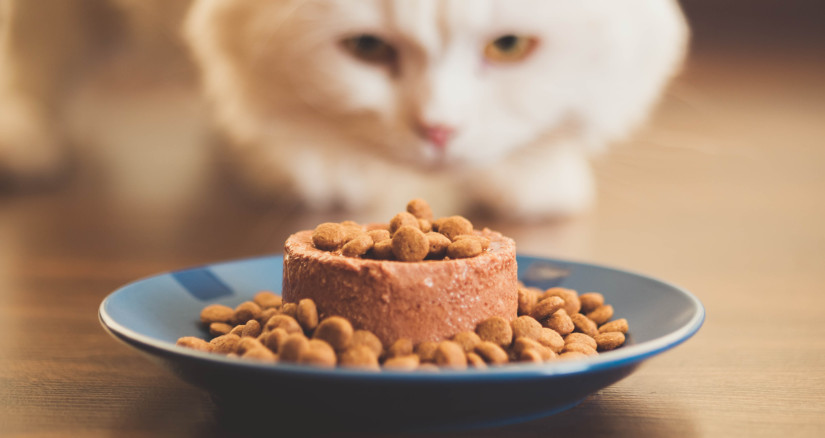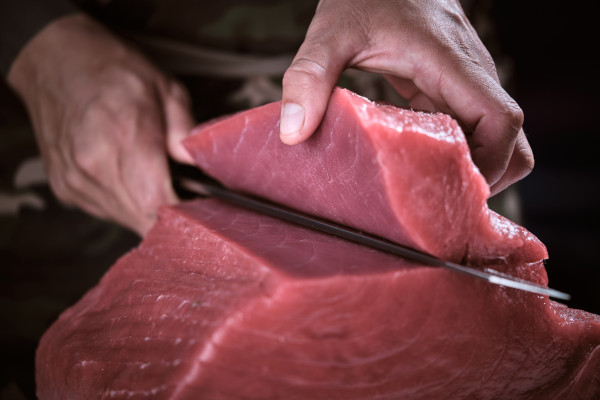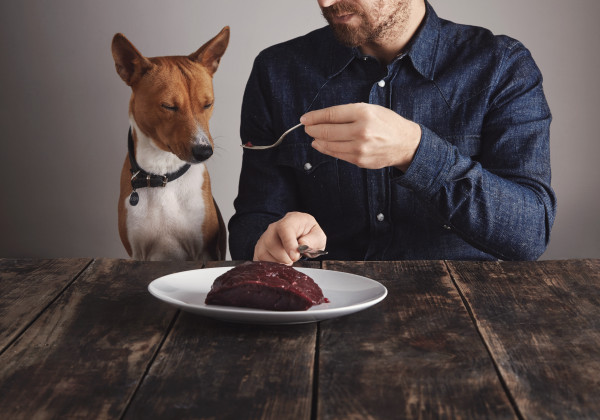
Experts Weigh In: Should Pet Owners Be Worried About Taurine?
Taurine has been making headlines in recent scientific literature, particularly in the context of cancer research. A recent high-impact study in Nature revealed a surprising role for taurine in leukemia progression, demonstrating that cancer cells can utilize taurine from their surrounding environment to fuel growth. Understandably, this kind of discovery may raise concerns among pet owners: if taurine supports cancer growth in mice and humans, should I be worried about the taurine in my pet’s food?
The short answer: absolutely not. In fact, taurine is not only safe for your pet, but it’s also an essential nutrient, particularly for cats and, in some cases, dogs.
An Essential Nutrient For Cats
Cats are obligate carnivores, meaning their bodies are uniquely adapted to derive essential nutrients from proteins. One of the most critical of these nutrients is taurine, a sulfur-containing amino acid that plays a role in several biological processes. While many mammals can synthesize taurine from other amino acids, such as methionine and cysteine, cats lack sufficient enzyme activity to do this efficiently. As a result, they must obtain taurine directly from their diet, primarily from meat, organ tissues, or synthetic amino acid supplementation.
Taurine supports multiple systems in the feline body:
- Vision health: Taurine is required for the maintenance of photoreceptor cells in the retina. Deficiency can lead to feline central retinal degeneration (FCRD), a condition that causes progressive and often irreversible vision loss.
- Cardiac function: Taurine plays a critical role in maintaining healthy heart muscle cells. Cats with low taurine levels are at high risk for dilated cardiomyopathy (DCM). In this life-threatening condition, the heart becomes enlarged and weakened, reducing its ability to pump blood effectively.
- Reproduction and fetal development: Taurine is needed during pregnancy. Inadequate taurine intake in pregnant queens can lead to developmental abnormalities, low birth weight, or even fetal loss.
- Immune system regulation and bile acid conjugation: Taurine is essential for the liver to form bile salts, which are required for the digestion and absorption of fats. Without sufficient taurine, cats may experience digestive issues and impaired absorption of fat-soluble vitamins, as well as a weakened immune response.
When a cat’s diet is deficient in taurine, the effects often don’t appear immediately, but over time, and the consequences are severe and potentially irreversible. For example, vision loss and heart disease caused by taurine deficiency may not be recoverable even after a dietary correction. That’s why commercial cat foods are guided by the Association of American Feed Control Officials (AAFCO) to include taurine, ensuring cats receive adequate amounts to maintain health and prevent these devastating outcomes.

Photo by ADDICTIVE_STOCK
Conditionally Essential For Dogs
Unlike cats, dogs are not obligate carnivores and have the metabolic flexibility to synthesize taurine from other sulfur-containing amino acids, such as methionine and cysteine. For this reason, taurine is traditionally considered a non-essential amino acid in canine nutrition.
However, emerging research and veterinary case reports have shown that this assumption may not apply to all dog breeds. Some research suggests that certain breeds, such as Golden Retrievers, may have difficulty biosynthesizing taurine. Therefore, taurine supplementation may be beneficial for some dogs. As a result, many pet food manufacturers have added supplemental taurine to dog foods, even though AAFCO does not currently require it.
What the New Research Found (and What It Means for Pets)
The recent study in Nature found that in aggressive, therapy-resistant leukemia (in humans and mouse models), cancer cells exploited taurine to fuel their growth through a receptor called TAUT. Importantly, this was a very specific situation involving:
- Malignant leukemia stem cells
- A cancer-altered bone marrow environment
- High expression of taurine transporters that help the cancer grow
Here’s the critical distinction: this does not mean taurine causes cancer. Rather, cancer cells can hijack otherwise normal biological processes, including nutrient uptake, to survive.
There is no evidence that taurine supplementation in healthy pets increases the risk of cancer.
This study builds on what we already know about taurine and cancer. In some situations, taurine may help prevent cancer from developing. It has been shown to slow down tumor growth and help kill cancer cells in types like breast and colon cancer by reducing harmful stress in the body and calming inflammation. Animal studies have also found that taurine supplements can lower the chances of developing liver and bladder tumors caused by chemicals. On top of that, taurine helps keep cells healthy by protecting their energy centers (mitochondria) and keeping their outer layers (membranes) stable, which may be helpful in early disease or to protect healthy tissue.
Taurine has been used in pet food for decades, with a well-established safety record. Taurine has neuroprotective, cardiovascular, and antioxidant benefits in many contexts. The inclusion of taurine in cat diets is not only beneficial—it’s considered by AAFCO to be a required nutrient in commercial foods to meet the nutritional adequacy standards they recommend. For dogs, taurine supplementation is generally considered safe and may offer added cardiovascular support, especially in susceptible breeds.

Photo by bublikhaus
Science Is Powerful, Yet Context Matters
Scientific studies, especially those as groundbreaking as the recent research on taurine and leukemia, are essential for advancing our understanding of disease and enhancing both human and animal health, but science doesn’t operate in sound bites. It requires context, careful interpretation, and a clear understanding of the specific conditions being studied. What’s true in a lab model of aggressive human leukemia is not automatically true for healthy pets, and making that distinction is key.
At BSM Partners, our team of scientists, veterinarians, and nutritionists lives and breathes research—not just reading it, but critically analyzing it, translating it, and applying it in ways that help brands and pet parents make evidence-based decisions. We’re passionate about separating facts from fear and making complex science easy to understand and act upon responsibly.
More research is needed to explore taurine’s role in cancers, but it is important to understand that taurine is not a threat. It’s a vital nutrient that plays an essential role in your pet’s health, and we’re here to ensure that important truths like this aren’t lost in translation.
Follow us on LinkedIn for the latest updates on all things happening here at BSM Partners.
About the Author
Dr. Katy Miller works as the Director of Veterinary Services at BSM Partners. She earned her veterinary degree at Ross University and completed her clinical year at Louisiana State University. She previously served for 11 years as the Director of Dog and Cat Health and Nutrition for Mud Bay where she earned multiple certifications and specialized in pet food nutrition, prior to which she practiced general and emergency medicine for seven years. She is also a competitive three-day eventer, licensed falconer, and claims only two (Golden and Mini Doxie) of their nine dogs.
This content is the property of BSM Partners. Reproduction or retransmission or repurposing of any portion of this content is expressly prohibited without the approval of BSM Partners and is governed by the terms and conditions explained here.